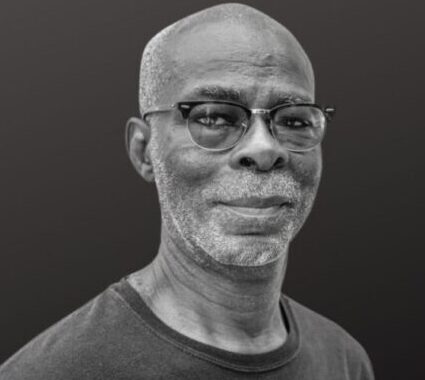
Nigeria can
Many have seen the video of Nigerian leader Bola Tinubu driving through Lagos Island during the Christmas holiday. It is the perfect story of Nigeria: the powerful leader driving through a throng of people in an avalanche of expensive SUVs. Security officials in suits jog alongside Oga’s bulletproof car.
If you wonder why we are so poor, the answers are in that video. The first image is of an economy, like a postcard, of thousands of people glued together on both sides of the street, frozen each to a spot.
The street is filthy, but that does not matter. The convoy arrives, confused supporters of Oga’s “Renewed Hope” slogan screaming their frustrations into the air. “We’re hungry!”
Inside the car with the hapless jogging officials, it is impossible to tell whether Oga is snarling or smiling. Other reports say that ahead of him, at his residence, crowds are also gathered, day and night, awaiting his largesse. As the extensive convoy finally ends, the crowd breaks into mild tumult, running after it.
In the traditional New Year speech that Nigerian leaders feel compelled to offer to the citizens, Mr. Tinubu acknowledged the anger in the country.
“From the boardrooms at Broad Street in Lagos to the main streets of Kano and Nembe Creeks in Bayelsa, I hear the groans of Nigerians who work hard every day to provide for themselves and their families,” he said.
He cited “the rising cost of living, high inflation which is now above 28 per cent and the unacceptable high under-employment rate,” saying he knows “that some of our compatriots are even asking if this is how our administration wants to renew their hope.”
Then he plunged into cliches and platitudes. “The time may be rough and tough, however, our spirit must remain unbowed because tough times never last.
“We are made for this period, never to flinch, never to falter. The socio-economic challenges of today should energize and rekindle our love and faith in the promise of Nigeria.
“Our current circumstances should make us resolve to work better for the good of our beloved nation. Our situation should make us resolve that this new year 2024, each and every one of us will commit to being better citizens.”
It is something of an irony that at a time that governance and governments have become a heavy burden on the people that a leader suggests that they should stop whining because this is the last time they will suffer.
It began with President Olusegun Obasanjo at his first inauguration in 1999. “You have been asked many times in the past to make sacrifices and to be patient,” he declared.
“I am also going to ask you to make sacrifices, and to exercise patience. The difference will be that in the past sacrifices were made and patience exercised with little or no results.
“This time, however, the results of your sacrifice and patience will be clear and manifest for all to see. With God as our guide, and with 120 million Nigerians working with me, with commitment, sustained effort, and determination, we shall not fail. On my part, I will give the forthright, purposeful, committed, honest and transparent leadership that the situation demands.
“I am determined with your full cooperation, to make significant changes within a year of my administration. Together we shall take steps to halt the decline in the human development indices as they apply to Nigeria. All the impacts of bad governance on our people that are immediately removable will be removed, while working for medium and long term solutions.”
Within one year.
Nigerians kept that faith, but after eight years, Obasanjo was hunting for four more. Failing to accomplish that, he single-handedly imposed on Nigeria the Umaru Yar’Adua/Goodluck Jonathan leadership, which served as manure for the current APC menace.
But Nigerians do feel hunger or pain, also known as flinch or falter. Where permitted to vote, they have always given to be protected and allowed to prosper, a right they are routinely denied.
That is why Mr. Tinubu is wrong when he says, “Our current circumstances should make us resolve to work better for the good of our beloved nation. Our situation should make us resolve that this new year 2024, each and every one of us will commit to being better citizens.”
The correct thing to have said was, “Our current circumstances demand that my administration commit to serving Nigeria earnestly and honestly. Our situation makes us resolve that, commencing this first day of 2024, we will strive to be true leaders.”
How can this be done? The principal challenge before Nigeria is the character of its leadership. Nigerians have seen all kinds of insincere, self-serving, hypocritical, leaderships. As much as it might sound like a contradiction in terms, it would be remarkable to see something different.
In 2019, for instance, President Buhari announced that a whopping N1 trillion had been squandered on constituency projects in just 10 years. He was talking about federal legislators.
In other words, those funds had basically been looted. But that is an enterprise in which the executive branch has led the way for over two decades. Nobody, for example, especially Buhari, has accounted for repatriated Sani Abacha loot. Only a few months ago, the Federal High Court ordered the Tinubu government to disclose how much of General Sani Abacha’s stolen funds has been recovered since 1999, and how the money was used.
Will Tinubu comply? The sincerity of the leadership is critical for successfully tackling the insecurity that is driving the country under. If the Tinubu administration wants to be remembered not simply for wrapping verbs around adjectives, it must find an answer to the insecurity, beginning with a swift analysis of the different kinds besetting the country.
To begin with, we know that the Nigeria Police now has full control of its personnel because last June, Mr. Olukayode Egbetokun, the Inspector-General of Police, withdrew police officers nationwide who were previously attached to VIPs. He had previously described himself as feeling like a tiger “ready to chase away all the criminals in Nigeria.”
Two months ago, Mr. Tinubu himself provided presidential backup for the order withdrawing policemen from VIP security duties. This means there are now policemen available to improve security nationwide, as opposed to cooking and cleaning for the privileged.
In addition to deployment, it is also time to review our operational security equipment, including that of the military. The Nigeria Air Force, for instance, continues to receive new equipment, such as its 12 Super Tucano jets in 2021, the 55 it announced in October 2022, 27 in January 2023, and 50 in March 2023, as part of an impressive armada. These are in addition to other important equipment in other the military units, the Nigerian navy possessing 75 warships, including 20 acquired during the Muhammadu Buhari years alone.
The point is that the men and equipment are available to secure Nigeria, and quickly, freeing the country up to revamp its economy, beginning from agriculture and employment.


